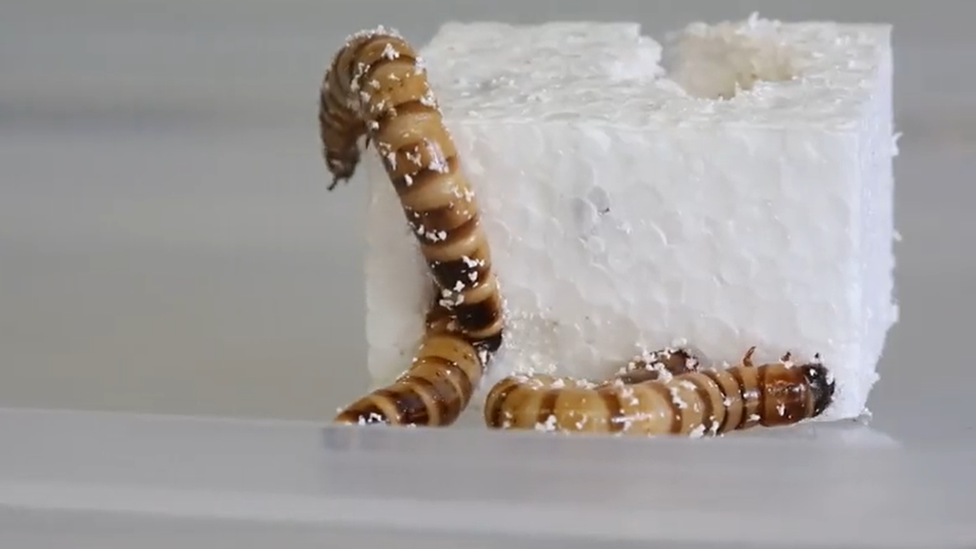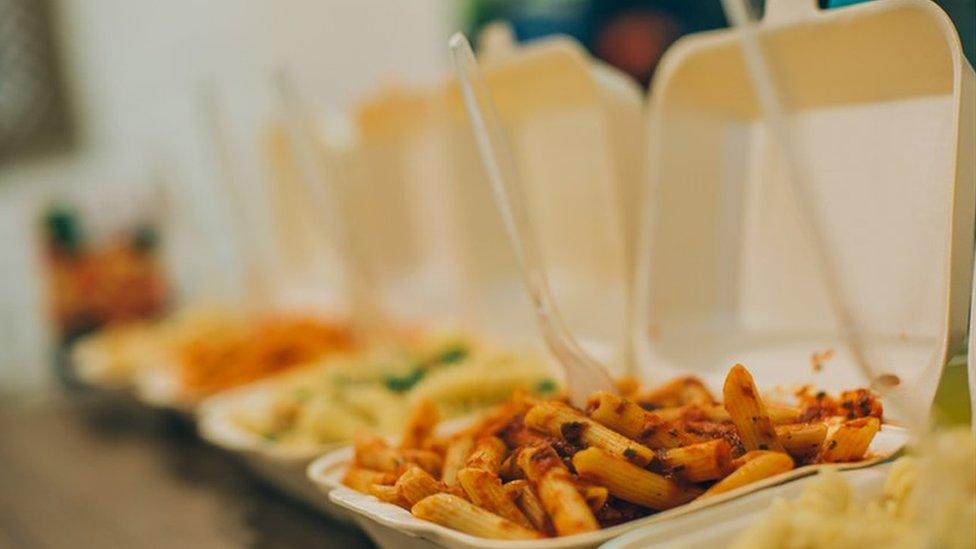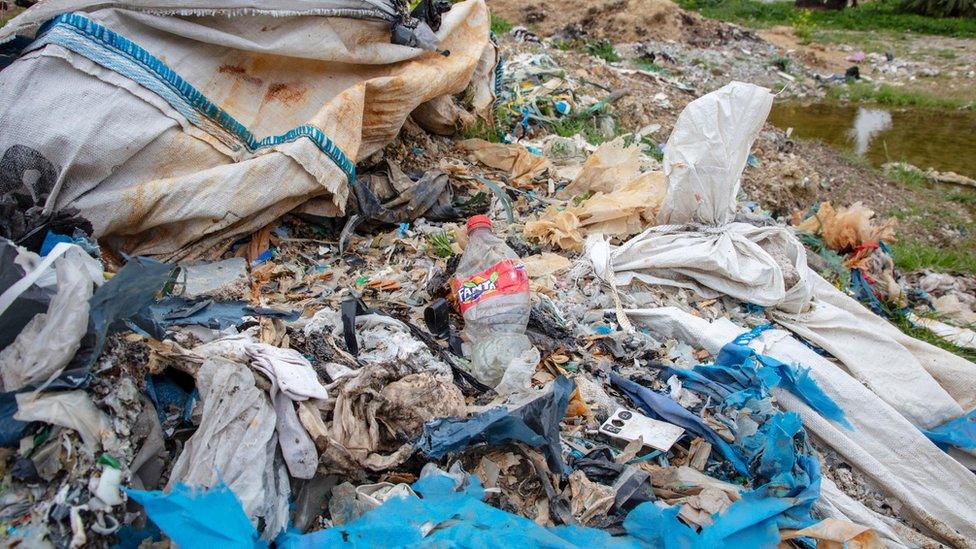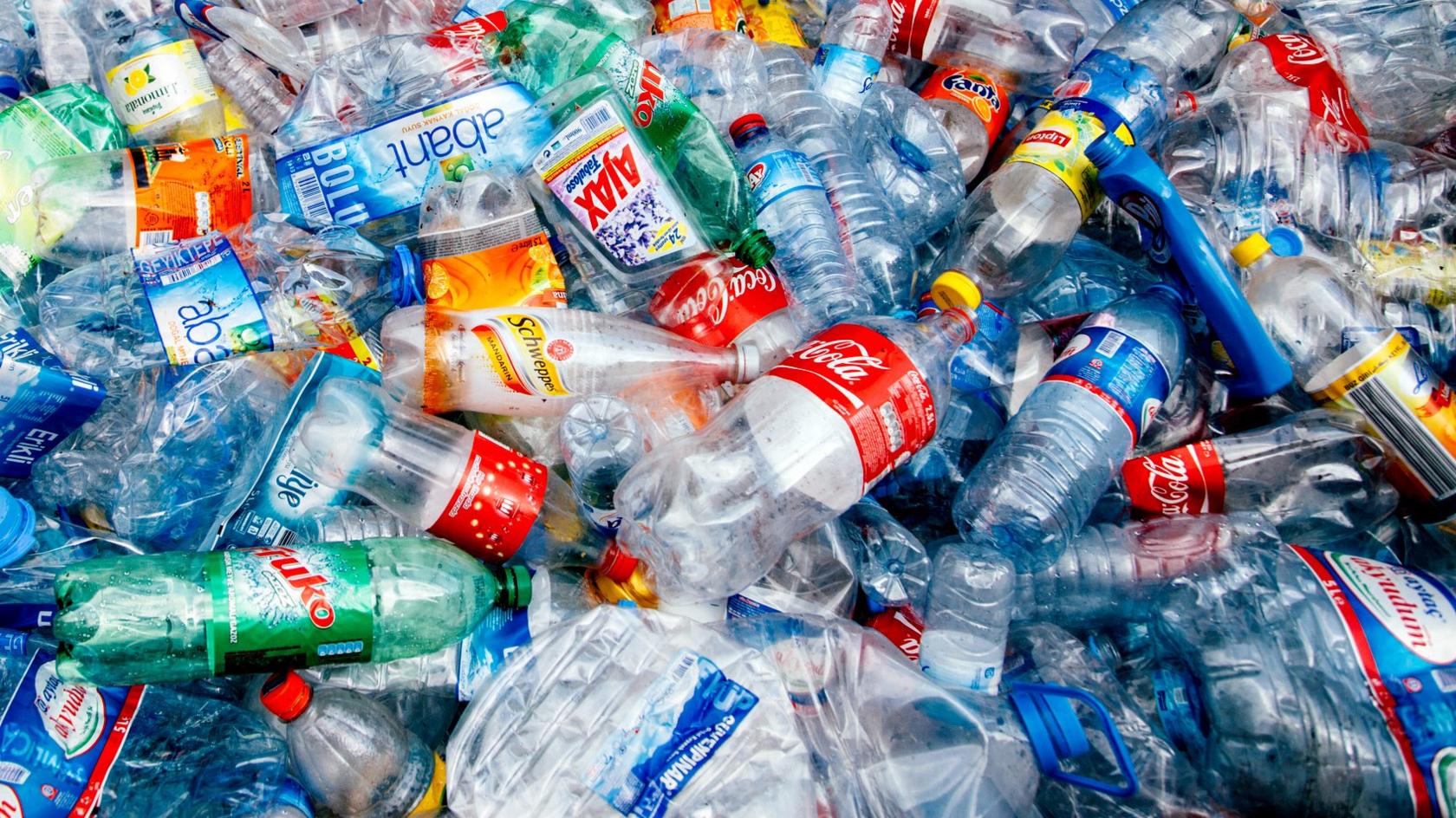Plastic pollution: Scientists discover polystyrene-eating superworms
- Published
- comments

Researchers found that superworm larvae were able to chew their way into blocks of polystyrene
We all know that plastic pollution is a big problem facing our planet at the moment, with lots of groups trying to find ways to help tackle it.
But could scientists have found an unlikely hero in the form of a superworm?
Researchers in Australia have discovered a beetle that can eat a type of plastic called polystyrene!
Experts think this could provide us with a new way of helping to reduce plastic waste in the future.
What did scientists find?

Polystyrene is commonly used in disposable cutlery, take away boxes and packing material
Polystyrene is among one of the most common forms of plastic, but recycling it isn't easy and the vast majority ends up in landfills or finds its way into the oceans where it can cause problems for marine life.
Researchers at the University of Queensland discovered that the larvae of a certain species of beetle - commonly called a superworm - can eat through polystyrene.
The team divided 171 superworms into three groups that were each fed either bran, polystyrene or no food at all for three weeks.
The researchers found that the worms who were fed the plastic, began to chew their way into blocks of polystyrene within a day!
It's thought that more than eight million tonnes of plastic enters the world's oceans each year, and most of that escapes from land.
They were able to do this thanks to special substances - called enzymes - that live in their gut.
Chris Rinke, who led the study, said that the next step was to see if it was possible for scientists to make this enzyme in a laboratory without needing to rely on superworm.
"Ultimately, we want to take the superworms out of the equation," he said.
He added that he now plans more research into finding a way of producing large amounts of the enzyme which is best at breaking down the plastic.
- Published28 August 2021

- Published17 May 2021

- Published23 July 2018

